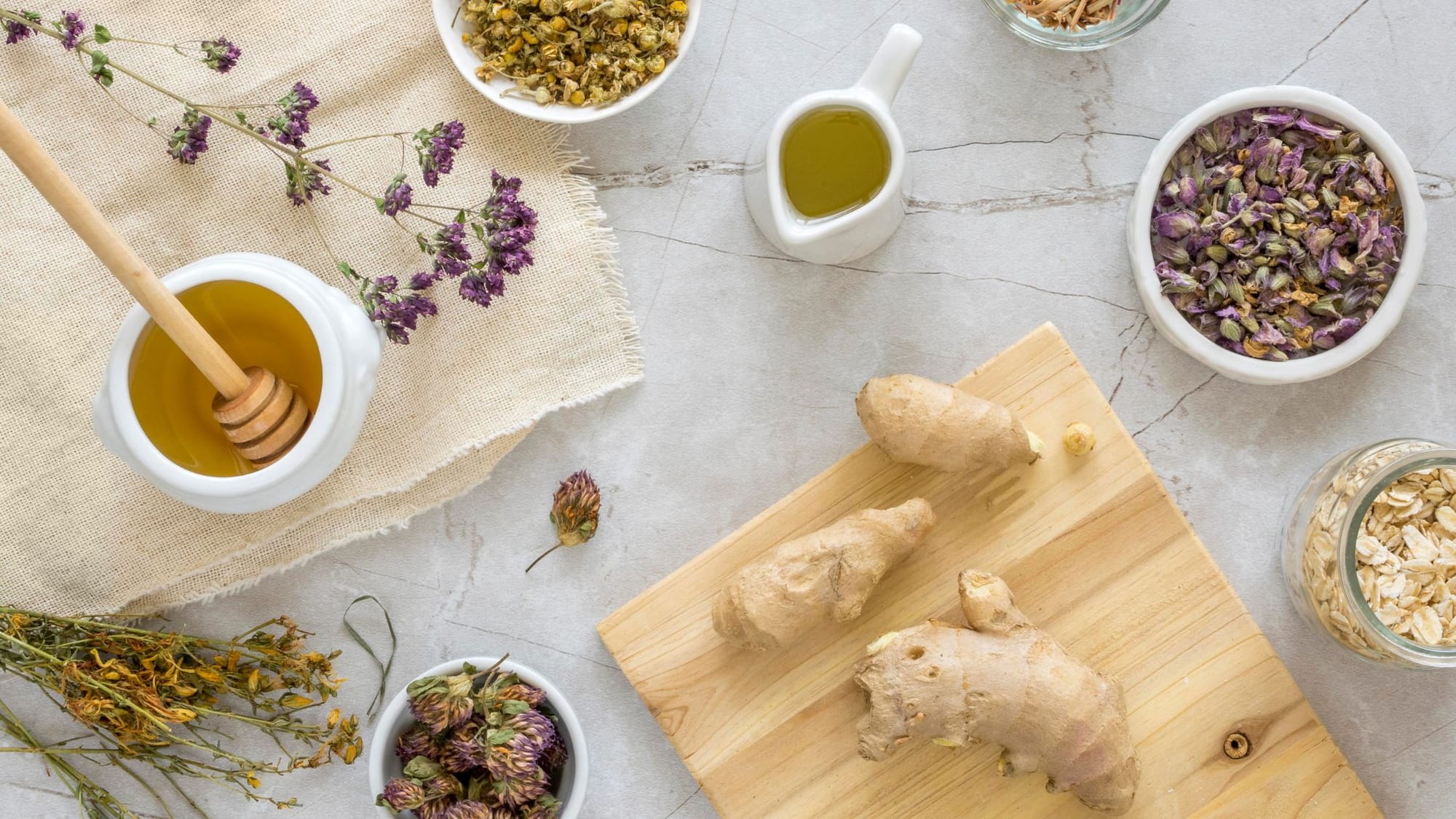German New Medicine 101: Stomach and Duodenum [Part 10]
In today's German New Medicine post, we will talk about stomach and duodenum-related diseases, what emotional conflicts cause them, and what we can do to recover.

German New Medicine (GNM) is an approach that connects emotional conflicts to physical health issues. Developed by Dr. Ryke Geerd Hamer, GNM suggests that diseases are the body's natural response to unresolved emotional stress.
The stomach and duodenum are vital for digestion, breaking down food, and absorbing nutrients. According to GNM, problems in these organs can arise from "indigestible morsel conflicts," where emotional stress causes physical symptoms, affecting digestion.
After reading this article, you'll understand the link between emotional conflicts and their impacts on your digestive system so that you can have holistic healing and better digestive health.
Table of Contents
What Is The Conflict-Active Phase In GNM?
During the conflict-active phase in German New Medicine (GNM), the body is in a state of stress and actively responding to the unresolved conflict. For the stomach and duodenum, this phase involves the proliferation of cells to aid digestion, as the body tries to handle the "indigestible morsel."
Signs and Symptoms:
- Increased cell growth in the stomach or duodenum
- Enhanced digestive enzyme production
- Symptoms like indigestion, stomach pain, or discomfort
- Emotional stress or anxiety related to the unresolved conflict
Read Also:


German New Medicine Stomach and Duodenum Conflicts

1. Stomach Ulcers
Emotional Conflict: When someone experiences intense anger that they cannot let go of, the stomach lining may respond by increasing gastric juice production, leading to ulcers.
2. Duodenal Ulcers
Emotional Conflict: Feeling that one's personal space or territory is being invaded can cause ulceration in the duodenum, as the body reacts to this perceived threat.
3. Chronic Gastritis
Emotional Conflict: When a person feels that their sense of self or identity is under threat, it can lead to chronic gastritis, affecting the small curvature of the stomach.
4. General Digestive Pain
Emotional Conflict: Difficulty accepting or dealing with a situation can cause ulcers and pain in the duodenum as the body attempts to process these emotions.
5. Hyperacidity and Gastritis
Emotional Conflict: Struggling with a challenging moral situation can create emotional turmoil, leading to hyperacidity and gastritis.
6. Indigestion and Bloating
Emotional Conflict: When someone finds it hard to process a distressing event, it can manifest as general digestive discomfort and bloating.
7. Nausea and Vomiting
Emotional Conflict: Intense disgust or revulsion can affect the stomach lining, causing symptoms like nausea and vomiting.
8. Increased Stomach Acid Production
Emotional Conflict: Overwhelming anger that feels unmanageable can lead to increased acid production, causing ulcers in the stomach lining.
9. Pain and Impaired Nutrient Absorption
Emotional Conflict: Simultaneous feelings of fear and disgust towards a situation can impact the duodenum, leading to pain and impaired nutrient absorption.
10. Indigestion
Emotional Conflict: A sudden, unforeseen problem that disrupts plans or expectations can affect the pyloric gland, leading to reduced digestive enzyme production and resulting in indigestion.
11. Digestive Discomfort
Emotional Conflict: Fear mixed with anger about one's territory being threatened can cause pain and discomfort during digestion, impacting the pyloric gland and duodenum.
12. Severe Ulcers and Inflammation
Emotional Conflict: Severe anger related to a situation that feels impossible to accept, combined with territorial concerns, can cause significant digestive issues like severe ulcers and inflammation in the stomach and duodenum.
Read Also:


How To Identify And Resolve Emotional Conflicts
Self-Reflection: Regular self-reflection helps in recognizing emotions and unresolved conflicts. Spend a few minutes each day contemplating your feelings and reactions to recent events.
Mindfulness and Meditation: Practices like mindfulness and meditation can bring subconscious conflicts to the surface. Regular meditation sessions can help you become more aware of your internal state and identify stressors.
Journaling: Keeping a journal allows you to express your thoughts and feelings, helping to clarify and understand underlying conflicts. Writing about daily experiences and emotions can reveal patterns and unresolved issues.
Professional Guidance: Seeking help from a therapist or counselor can provide valuable insights and strategies for resolving conflicts. Professionals can offer techniques to address emotional stress and provide a safe space for exploring deep-seated issues.
Healing Phase In GNM
In German New Medicine (GNM), the healing phase begins once the conflict has been resolved. During this phase, the body starts to repair the tissue damage that occurred during the conflict-active phase. For the stomach and duodenum, this involves the restoration of the mucous membranes and other affected tissues.
Common Symptoms
- Nausea and Vomiting: As the body works to heal, it may expel toxins and repair tissues, leading to symptoms like nausea and vomiting.
- Pain and Discomfort: Healing tissues can cause temporary pain and discomfort, similar to the sensation of wound healing.
Understanding that these symptoms are part of the healing process is crucial. It helps individuals to see these symptoms as signs of recovery rather than new health issues. Recognizing the body's natural healing response can provide reassurance and encourage patience and support for the body's healing journey.
Natural Remedies For Digestive Health

Chamomile Tea: Known for its calming effects, chamomile can soothe the stomach and reduce inflammation.
Ginger Tea: Helps with digestion, reduces nausea, and alleviates stomach discomfort.
Peppermint Tea: Relieves symptoms of indigestion, bloating, and gas.
Mallow Tea: Mallow tea is rich in mucilage, a gelatinous substance that coats and soothes the digestive tract, helping to alleviate symptoms of gastritis and ulcers by protecting the stomach lining.
Aloe Vera Juice: Aloe vera juice soothes and heals the stomach lining, reducing inflammation and promoting overall digestive health, making it effective for conditions like gastritis, acid reflux, and IBS.
Lemon Balm: Lemon balm promotes digestion and soothes abdominal cramping, making it useful for digestive issues such as indigestion, gas, and bloating.
Fennel and Anise: Fennel and anise reduce and prevent gas production and bloating, relieving symptoms of gas, bloating, and colic.
Papaya and Pineapple: Papaya and pineapple are rich in enzymes that promote optimal digestion by breaking down proteins, aiding in the reduction of symptoms of indigestion and constipation.
Fermented Foods: Yogurt, kefir, and sauerkraut are rich in probiotics that maintain gut health by promoting a healthy balance of gut bacteria.
Tips For Maintaining Digestive Health Through GNM Principles
Stress Management: Implement regular stress-relief practices such as yoga, breathwork, and relaxation exercises. Techniques like deep breathing and progressive muscle relaxation can help manage stress levels effectively.
Balanced Diet: Consume a diet rich in anti-inflammatory foods, such as fruits, vegetables, whole grains, and lean proteins. Avoid foods that are known to trigger digestive issues, such as spicy, fatty, or acidic foods.
Adequate Hydration: Drinking plenty of water throughout the day supports digestion and overall health. Staying hydrated helps in the smooth functioning of the digestive system and the elimination of waste.
Healthy Sleep Patterns: Ensure you get sufficient sleep each night to allow your body to heal and regenerate. A regular sleep schedule supports overall health and helps in managing stress.
Regular Physical Activity: Engage in regular exercise to maintain physical and emotional well-being. Activities like walking, swimming, or yoga can improve digestion and reduce stress.
SUPER TIPP: EFT (Emotional freedom technique)
This simple yet effective method involves tapping on specific points on the body, linked to the meridians used in traditional acupuncture. By tapping these points while concentrating on emotional stress or pain, many find significant reductions in anxiety, stress, and physical discomfort.
Please watch the tutorial above to learn more about how you can incorporate this technique into your daily routine for enhanced well-being.
Read Also:


Final Words
German New Medicine (GNM) shows how emotional conflicts can cause physical health problems, especially in the stomach and duodenum. By identifying and resolving these conflicts, you can help your body heal naturally. Using herbal teas, and probiotics, and making smart dietary choices can improve your overall digestive health.
Read our previous GNM posts to better understand the connection between your mind and body!


